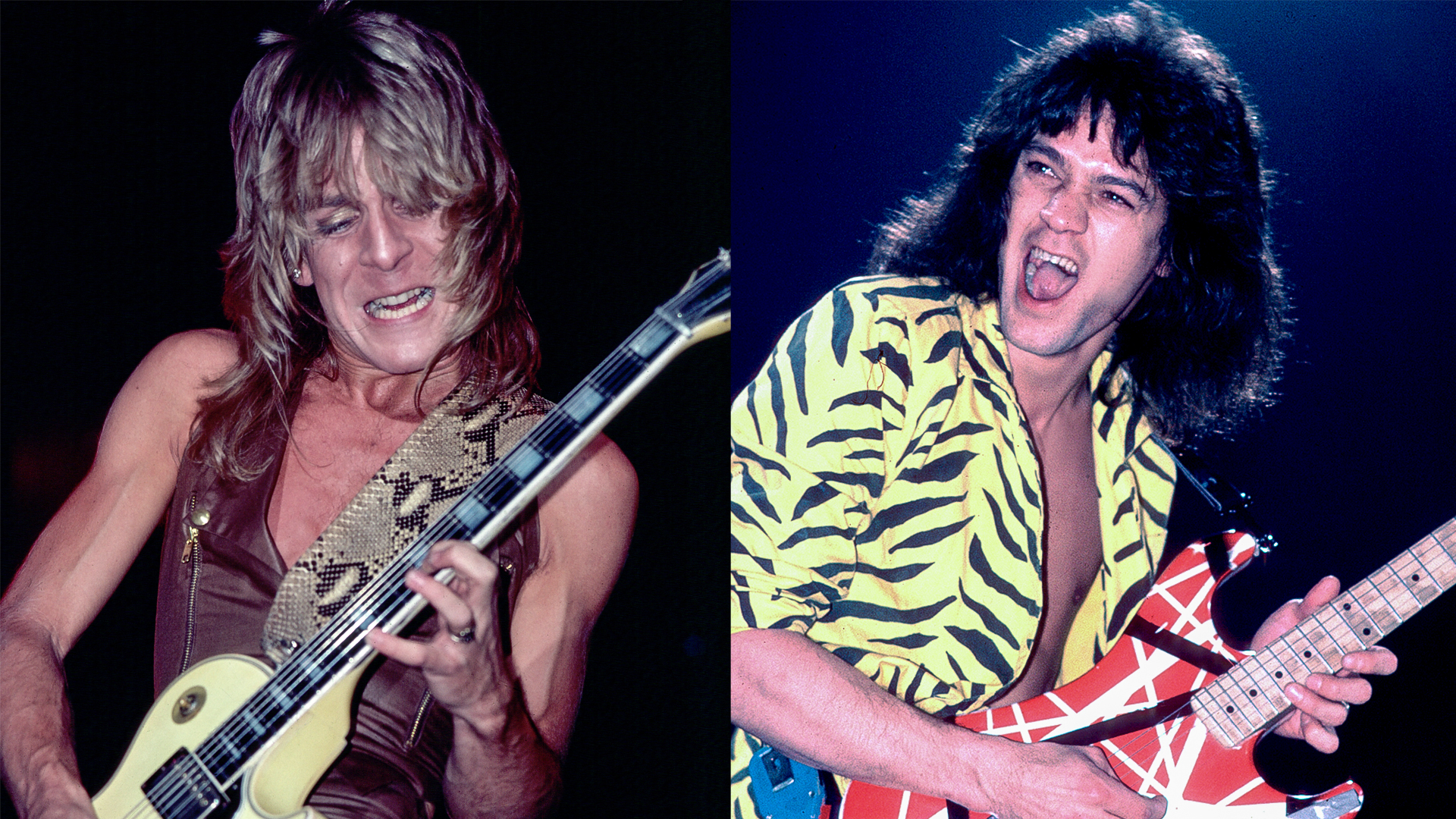“He found me, this 230-pound guy, playing guitar. Alice never goes for the safe bet.” How a guitar-playing bodybuilder with no musical experience helped Alice Cooper resurrect his career in the shred-metal '80s
Cooper was trying to find relevance in the MTV era. He found what he needed in 24-year-old Kane Roberts
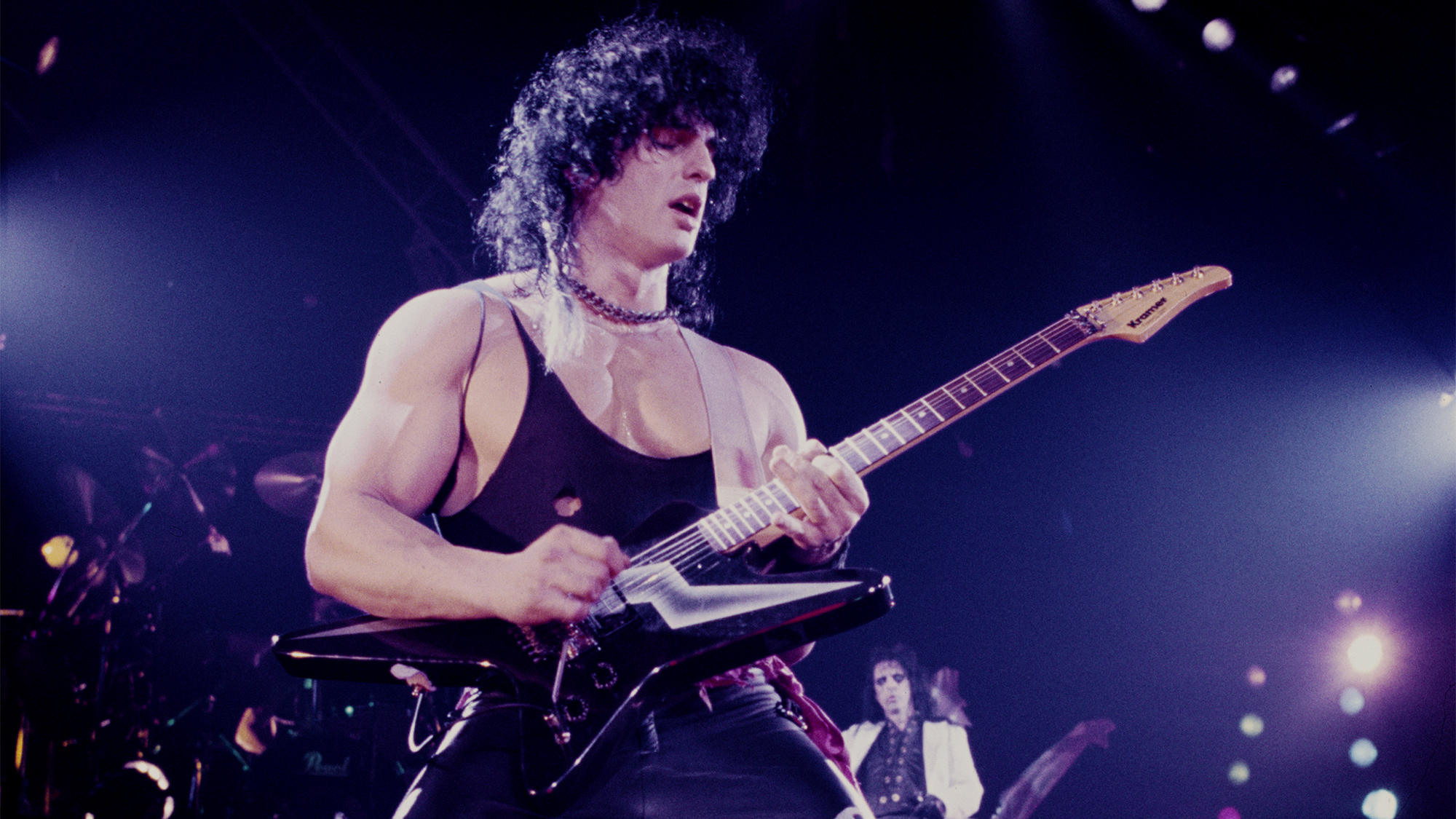
All the latest guitar news, interviews, lessons, reviews, deals and more, direct to your inbox!
You are now subscribed
Your newsletter sign-up was successful
By the 1980s, Alice Cooper’s career was all but dead. His copious alcohol intake had seen him go from a shock-rock icon in the 1970s to a dead-and-buried dinosaur unable to keep up with the wave of hair metal washing over MTV’s airwaves.
Cooper’s early '80s records, Flush and Fashion, Zipper Catches Skin and DaDa, were, in a word, weird. In fact, they flopped so catastrophically that Cooper had no choice but to get clean (which he did) and try to play catch-up.
But for a 40-year-old star of yesteryear to do that, he would need to do more than hypercharge his image and sound — he would need to inject some serious guitar playing into the mix.
It wouldn’t be easy. His old rock and roll guitar pals Dick Wagner and Steve Hunter weren’t going to cut it in the ‘80s shred era. Cooper needed a shredder, and one with moxy to boot.
He found what he was looking for in 24-year-old Kane Roberts, a Rambo-like bodybuilder of a guitarist who could do more than shred — he could also write era-correct glam metal.
Roberts wasn’t a brand name— he was starting from the bottom. His background was even more unlikely than Cooper’s return to the limelight.
“I was dealing cards at illegal blackjack games to make money,” Roberts tells Guitar Player.
All the latest guitar news, interviews, lessons, reviews, deals and more, direct to your inbox!
“It was at a hotel. They’d rent big conference rooms on the weekend, and they’d show me where all the guns were, I’d do that to survive.”
But he had dreams of making it as a musician.
“I had recorded a tape and given it to a company called Screen Jumps Publishing,” he explains. “And they gave it to Bob Ezrin.”
Ezrin had produced much of Cooper’s work in the ‘70s and, though he and Cooper didn’t work together in the 1980s, he was part of his trusted camp. Ezrin liked what he heard and invited Kane to meet with him, Cooper and Cooper’s manager, Shep Gordon.
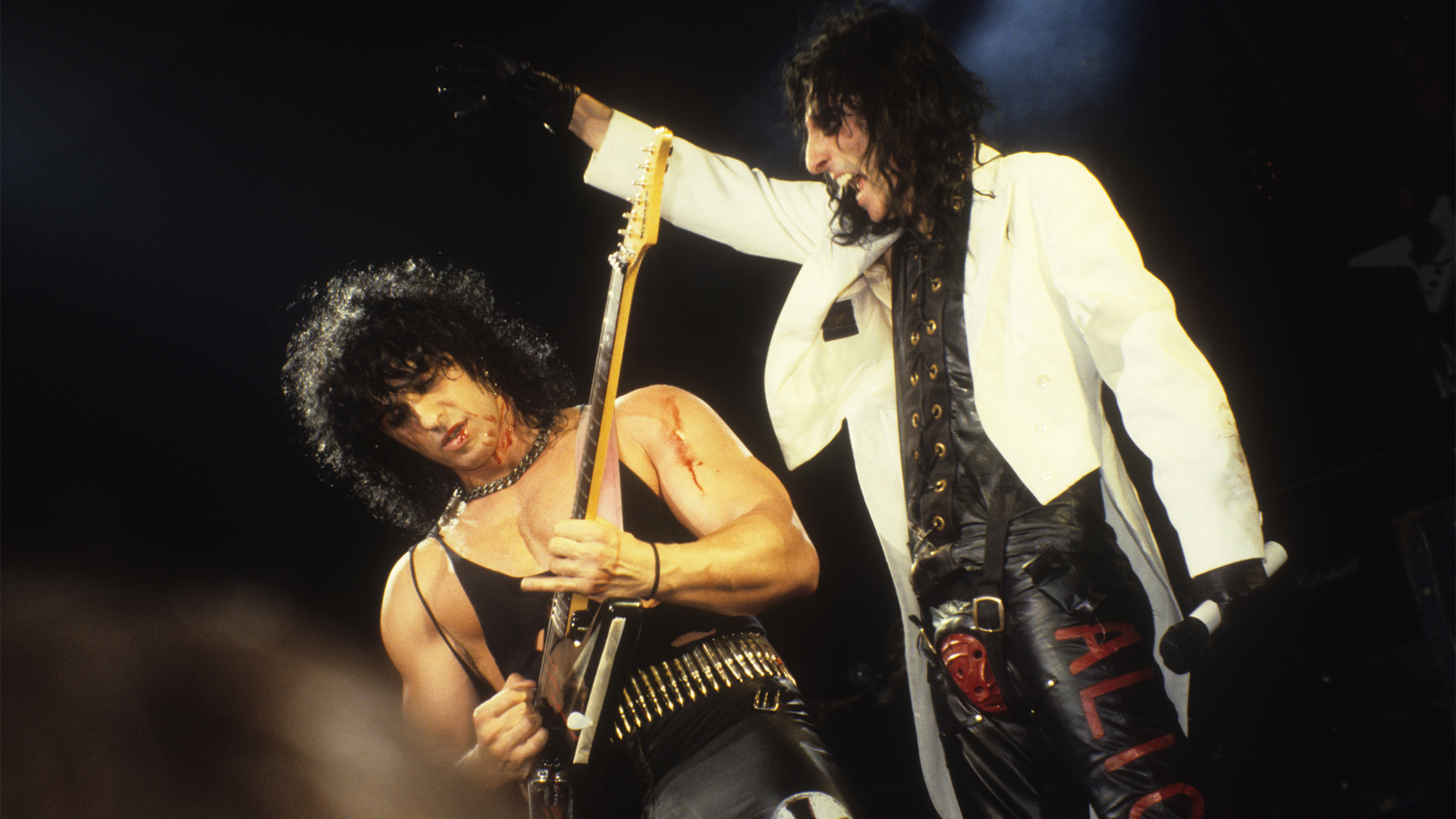
“I went down there, and I sat in this room with Shep Gordon, Ezrin and Alice Cooper,” Roberts says. “Alice and I got along; we just started laughing. We immediately became friends.”
Before anyone knew it, Roberts was Cooper’s new lead guitarist. The singer clearly trusted his new recruit’s instincts, and leaned heavily on him for creativity.
“We really got into it,” Roberts says. “I didn’t want Alice to seem like he just survived rehab. I want him to come back as a nuclear version of what he’d been.”
But how to bring the 1970s shock rocker into the MTV era dominated by the likes of Van Halen, Ozzy Osbourne and other hard and heavy rockers?
“We had to upgrade the energy and the sound to make it much more metal,” Roberts explains, “because that’s where I came from.”
But Cooper’s history came with expectations, too. “We did need to preserve the history events in terms of that music and keep the essence of the classics,” Roberts says. “Alice and I agreed on that.”
The cover of 1986’s Constrictor set the tone. It served up a photo of Cooper being engulfed by a massive snake, imagery that harkened back to 1970s Cooper classics like Killer, which featured a picture of a snake flicking its forked tongue.
But the music was another story. Songs like “Teenage Frankenstein” featured modern production, bigger sounds and loads of metal-to-the-max guitar mastery. Constrictor—and its subsequent supporting tour—did well, putting Cooper back on the popular music radar. The album went Gold, peaking at number 59 on the Billboard 200 chart. It wasn’t bad, but Roberts knew they could — and needed to — do better with 1987’s Raise Your Fist and Yell.
“For the second album, we hit the ground running,” he says. “We came off tour and started recording, and it was killer. We tore right through it, and the process was really good, as was our relationship.”
Onstage, Kane made the most of his large physique, wearing T-shirts that revealed his muscles and brandishing a variety of shred-approved electric guitars, including Kramers and Schecters. But his best known weapon of choice was a six-stringed machine gun that shot fire.
“Some kid called up Shep Gordon and said, ‘Hey, I have a guitar that might be good for the Alice Cooper tour,’” Roberts says. "Shep called me up and said, 'Hey, Kane, take a look at this and meet with this kid.' So I did."
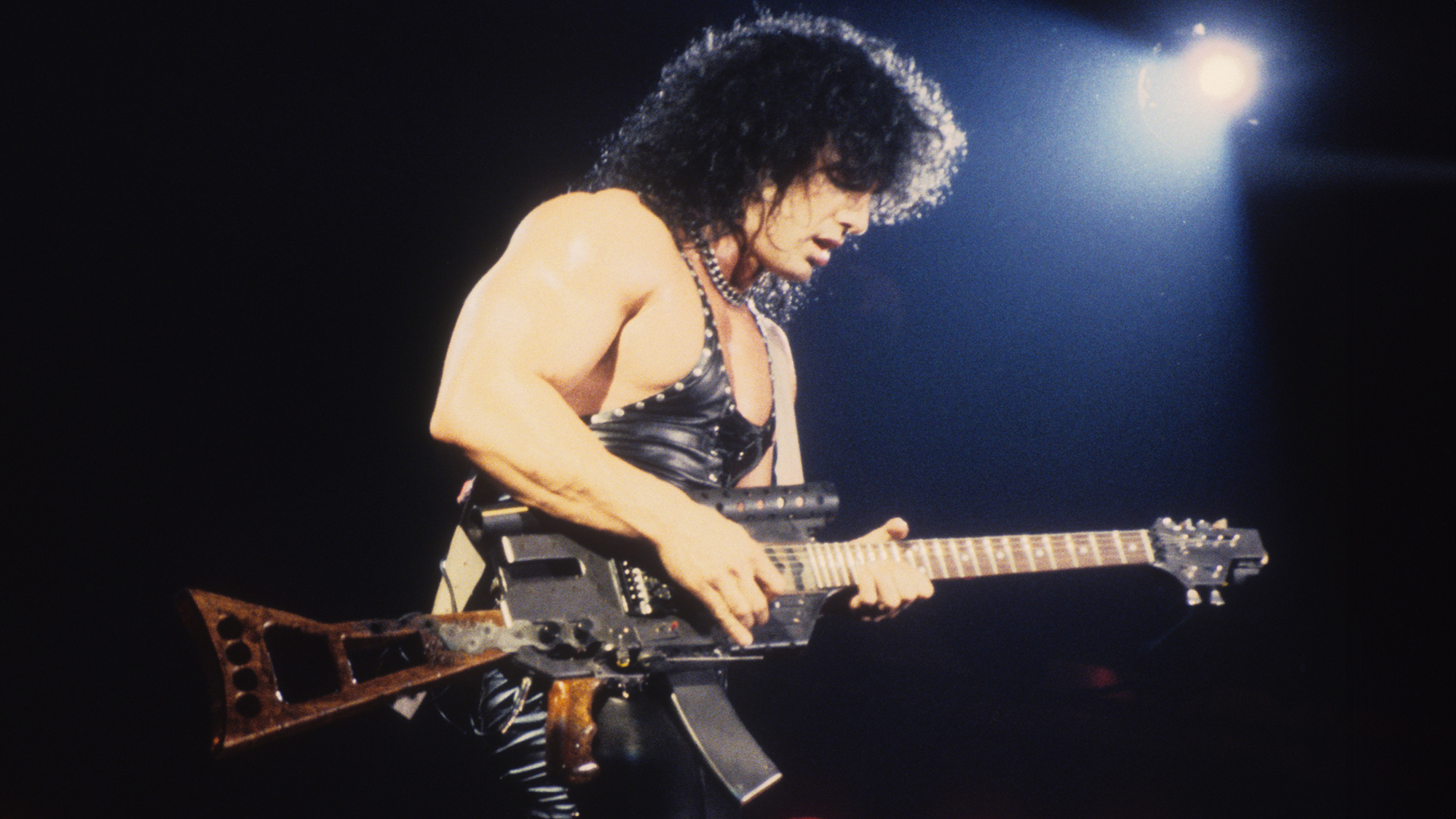
Although the process and his and Cooper’s chemistry were good, Raise Your Fist and Yell did not surpass Constrictor. The reviews weren’t very positive either. Although the record went Gold, it peaked at number 73 on the Billboard 200 chart. Things seemed to be backsliding.
Perhaps the second wave of hair-metal-tinged shock rock wasn’t going to be a thing after all. But no one was holding Roberts responsible, especially Geffen Records, who saw the guitarist's hulking character and immense chops as a goldmine. The label signed him to a solo deal and poached him out of Cooper’s band.
“It ended,” Roberts says of his time with Cooper. “I got a record deal with Geffen, and I think Cooper changed labels when he did his next record, too. It just ended. There wasn’t any controversy; we just stepped in different directions.”
Cooper moved from MCA to Epic, but he took what he’d culled from Roberts with him. The result was 1989’s Trash, which sounded a whole hell of a lot like what he’d done with Robert’s on Constrictor and Raise Your Fist and Yell.
The single “Poison” — cowritten by Cooper with his new guitarist, John McCurry, and hit songwriter Desmond Child — finally gave Cooper the hit he needed, reaching number seven on the U.S. charts and number two in the U.K. Cooper finally reclaimed his place at the top of the rock and roll mountain.
As for Roberts, his solo career with Geffen had a short run. His debut, 1987’s Kane Roberts, got a tepid response, but 1991’s Saints and Sinners had some commercial success and is recalled as a cult favorite. It even featured a radio hit, “Does Anybody Really Fall in Love Anymore?,” composed by Jon Bon Jovi, Richie Sambora and Diane Warren (and previously covered in 1989 by Cher for her album Heart of Stone).
The guitarist stops short of taking credit for helping to relaunch Cooper’s career. “It was more like Alice’s evolution,” he says. “I’m happy to have influenced that a little bit, but he takes the bull by the horns and runs with it wherever he wants to go.
Although Cooper and Roberts talked about working together again, nothing happened until the fall of 2022 when Roberts filled in when Nita Strauss took a temporary leave to tour with Demi Lovato.
“Alice has had a great many guitarists shuffling in and out of this band,” Roberts says. “But I gotta be honest with you, I never expected to be called. His band has always been really good.”
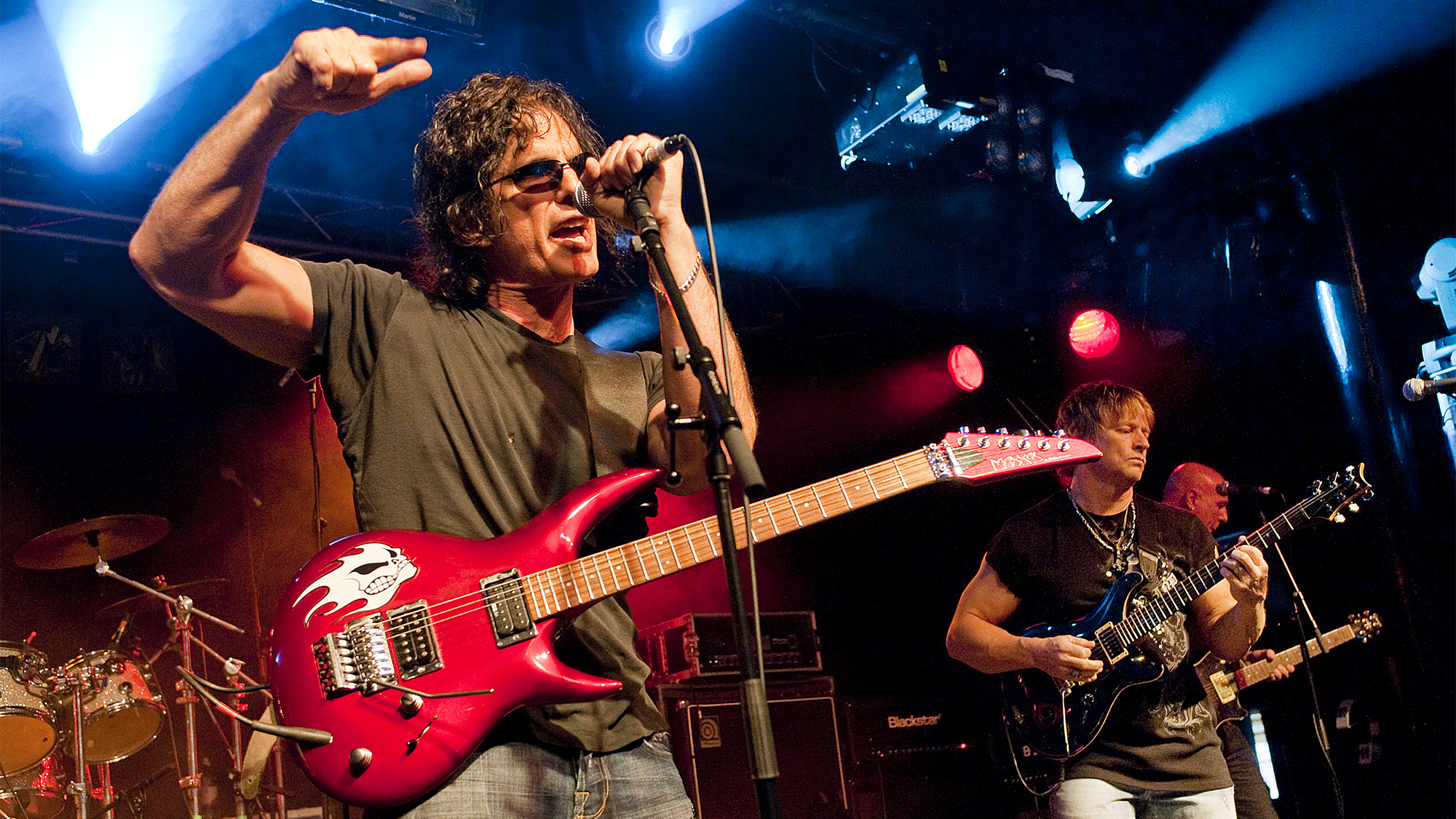
Since wrapping up his fill-in gig for Cooper in 2022, Roberts has returned to his own ventures. He’s working on things “without the bullshit recording industry,” but his next move remains to be seen, though he remains grateful. “You have to have faith,” he says. “If you work hard enough, the world will beat a path to your door.”
“That’s just the way life operates,” he says. “I’m living proof of that. I worked very hard, and the only band that would ever hire me was Alice Cooper. He found me, this 230-pound guy playing guitar. It was like, ‘Who is gonna hire this guy?’ He was the only one. Alice never goes for the safe bet, and I think that’s awesome.”
Andrew Daly is an iced-coffee-addicted, oddball Telecaster-playing, alfredo pasta-loving journalist from Long Island, NY, who, in addition to being a contributing writer for Guitar World, scribes for Rock Candy, Bass Player, Total Guitar, and Classic Rock History. Andrew has interviewed favorites like Ace Frehley, Johnny Marr, Vito Bratta, Bruce Kulick, Joe Perry, Brad Whitford, Rich Robinson, and Paul Stanley, while his all-time favorite (rhythm player), Keith Richards, continues to elude him.

